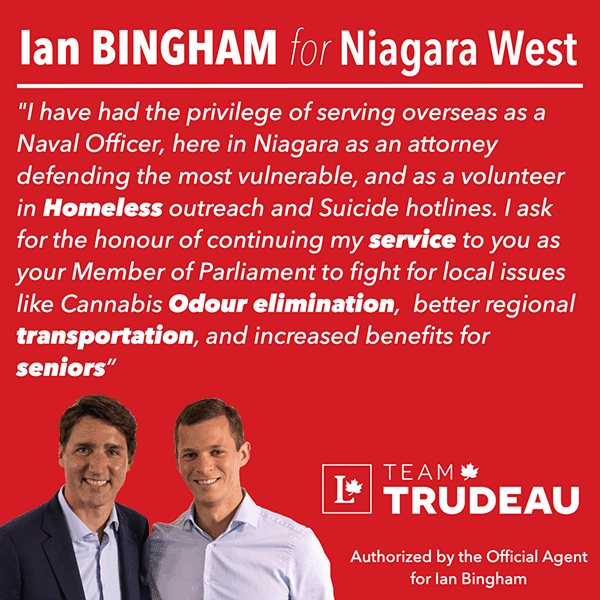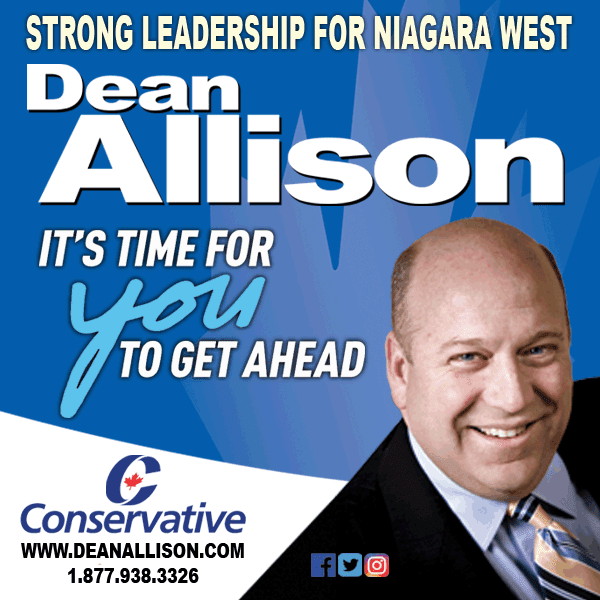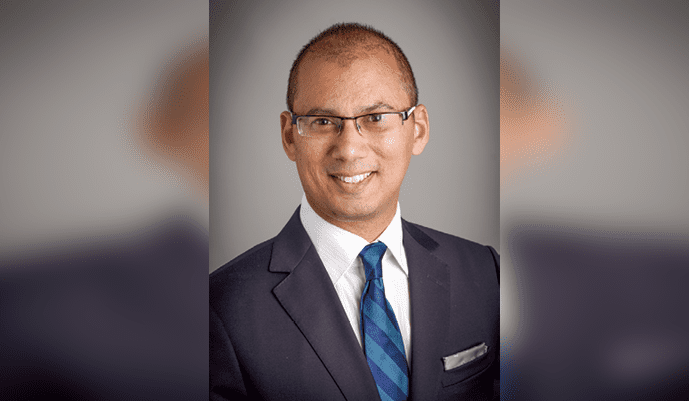NDP candidate says farms, seniors need help
BY JOHN CHICK Special to the VOICE
Nameer Rahman says that voters are telling him they’re in a cash crunch.
“What I’m hearing at the door, and what I’m hearing as a consistent theme, is affordability,” the federal NDP candidate for Niagara West told the Voice last week.
“Affordability for seniors, and for our agricultural sector. We’re at the stage where we’ve seen families in our middle class give more than they’ve given before, and they’re not necessarily getting more back.”
 The 41-year-old Grimsby strategist and consultant says that minor tax breaks aren’t doing the job.
The 41-year-old Grimsby strategist and consultant says that minor tax breaks aren’t doing the job.
“As a simple example, you’ve got folks who need daycare, but if you actually tabulate their daycare expenses, we’re talking about thousands of dollars per month. And that’s something you can’t get through a tax break, because the tax breaks generally aren’t large enough.”
He also touts the NDP’s national pharmacare plan as a major way to offset expenses—especially for Niagara’s large seniors population.
“We don’t have enough long-term care facilities in Niagara,” Rahman said. “[But] pharmacare is a large chunk of that, because as you get older your health issues pile up. If you don’t have benefits, you could be looking at bills in the tens of thousands of dollars. And [seniors] need support with that.”
 Rahman ran for the NDP in Niagara West in the 2015 federal election, finishing third. Living in the riding has brought to his attention another issue centered around the costs of succession with family farms.
Rahman ran for the NDP in Niagara West in the 2015 federal election, finishing third. Living in the riding has brought to his attention another issue centered around the costs of succession with family farms.
“One of the things that’s popped up is transfer of properties between different generations with a family farm,” he said. “Whoever the successor is has generally been stuck with a large tax bill. And that’s something they may not have cash at hand for. We’d like to make things easier for farms, particularly in succession planning, to ensure they can pass the farm from one generation to the next without being saddled with more debt.”
Rahman, like Green Party candidate Terry Teather, also points to the effects of climate change on farming.
“Most people see the environment as an abstract topic,” Rahman said. But if farmers can’t get a stretch of needed weather, “You’re looking at an industry in jeopardy. Farmers can lose all their crops and profitability in one bad day. These are the things that are the real cost of climate change in Niagara. We need to be able to act … both to prevent it, or to limit its impact and mitigate the damages.”
He said the federal government needs to work closer with municipalities in updating infrastructure that is increasingly unable to handle climate change —like in Toronto, where the city is running a program called the Resilient Toronto Initiative.
“We’re going to have to have those types of conversations at some point,” Rahman said.
In terms of an issue directly affecting Pelham, Rahman says an NDP government would work with federal bodies such as Health Canada on solutions around cannabis production, “and if required, funding.”
He compared the emergence of complaints about cannabis to the pushback against wind turbines in West Lincoln.
“As with any industry, there’s going to be things that you’re going to discover … and odour seems to be one of them,” he said.
On a personal level, as a Canadian of South Asian descent, Rahman was offended by the revelation that Justin Trudeau donned racially demeaning “brownface” and “blackface” in his earlier adult years— and believes the Prime Minister should have resigned over it.
“It’s a very complex issue, but I think he’s lowered the bar of political dialogue in Canada,” Rahman said. “I personally think if he truly wants to own it and show responsibility, he should step down. And I know there are people that would disagree with me on that, but we’ve got to hold our elected representatives to a higher standard. What I never expected in a million years was that Justin Trudeau—after all his virtue signaling—would have this history of blackface and brownface. I don’t think many Canadians understand how racist it really is. The history of [minstrelsy] is the history of depriving people of colour from the stage, and then representing them in derogatory ways. And for somebody who claims to be as progressive as he is, it talks not to his privilege, but ignorance. Straight out.”
Rahman believes other politicians would have been forced to resign over the same revelations.
“What I find is his true privilege is him being able to get away with it,” Rahman said. “There are real racists who are running [for office], and if Justin Trudeau gets away with an apology, somebody else could say, ‘You know what, if you can accept Justin Trudeau’s apology, you can accept mine.’”
On the topic of increasing political divisiveness —possibly driven by events in the United States — Rahman pleads for unity and understanding.
“We’ve seen this rise of populism that’s also sometimes taken racist elements,” he said. “And it’s started to unravel the threads of what binds us together. One of the reasons I wanted to step forward as a candidate is to say, ‘We can do better.’ We don’t have to pit members of different communities against each other.”



